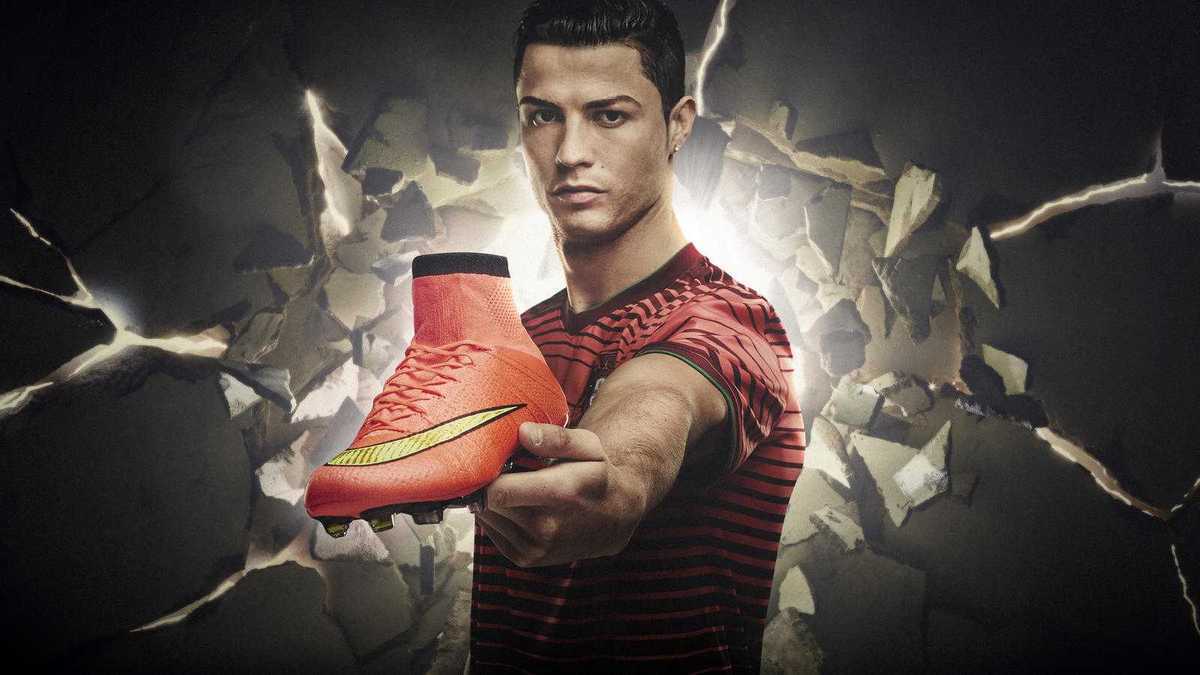Brand ambassador vs sponsor: what’s the difference?
- Publication date
- Author
- Imogen Beech
- Reading time
- 11 minute read
If you’ve spent any time on social media at all, you’ll have seen the terms ‘brand ambassador,’ ‘sponsored’ and ‘endorsed’ knocking about.
But what do they actually mean? And what’s the difference? Most importantly, as a brand, which should you be investing in?
Don’t worry, here, we’ll answer all your questions about ambassador vs sponsor.
A brand ambassador is someone who helps to promote a brand or product. They’re usually someone with some influence – whether that’s because they’re a celebrity or because they’ve built up a decent following through blogging or social media.
Essentially a brand ambassador acts as a spokesperson for the brand. They’ll use their influence to encourage their community to buy a brand’s products or services.
You might be wondering what makes someone a brand ambassador rather than just an influencer. Well, becoming a brand ambassador is something that many influencers strive for. Not only does it formalise their relationship with a brand, but it also tends to signal a long-term relationship, rather than just a short, one-off collaboration.
That said, exactly how a brand ambassador operates will depend on the brand and the ambassador themselves. While most brands invite individuals to become ambassadors, some will run less formal brand ambassador programs where almost anyone can join – not dissimilar to a referralor affiliate program.
Sponsorship in marketing is when a brand (the sponsor) aligns itself with something or someone, usually to boost brand awareness.
Most often, a brand will align itself to an aspect of another brand – for instance, an event like a sports match, conference or charity fundraiser. Depending on the agreement, they might offer money or other resources in return for advertising (their branding featured on posters and banners, for example).
But in reality, brands could choose to sponsor pretty much anything, including TV programs or even celebrities – which is where sponsorship can start to look very similar to the role of a brand ambassador!
Sponsored individuals are very common in the sports world, where an athlete might receive funding or resources in return for promoting their sponsor. However, this kind of sponsorship isn’t just limited to sports. Although it’s less common, you’ll also find sponsored musicians and artists, for example.
So, we’ve touched upon the similarities between brand ambassadors and sponsored individuals at surface level. But now let’s get down to the nitty-gritty. Here, we’ll look at how brand ambassadors and sponsored athletes, musicians or artists compare in a range of different ways.
Brand ambassadors and sponsored individuals can both take many different forms. But brand ambassadors tend to vary much more in terms of who they are and why they’re in a position to be able to promote a brand.
The term ‘brand ambassador’ can span many different scenarios – from your run-of-the-mill affiliate marketers to celebrities who are being paid to endorse a product or service, to student ambassadors who hand out promotions to their peers. Generally, anyone could be engaged as a brand ambassador who has a certain level of influence over others and is in a position to be able to encourage a community to buy a brand’s products or services. This means they might be professional influencers who’ve carefully cultivated a following, or they might just be amateurs who have somehow found themselves in a position of influence.
On the other hand, individuals who are getting sponsored tend to fit a much smaller description. They tend to be professionals in a field that gives them a decent amount of visibility – as opposed to professional influencers. Brands can therefore link themselves to these individuals in the same way as they would a sports team, event or TV program, to increase their brand awareness.
For instance, a professional tennis player might receive funding or resources to help them get to the top of their game, or an artist might receive free art supplies or support towards hosting an exhibition. The sponsor would then benefit from being associated with their professional activities. Which brings us onto…

Both brand ambassadors and people who are being sponsored are expected to help promote their partner brand. However, the expectations do vary somewhat depending on the kind of partnership that’s been agreed.
In general, sponsorship comes with a more formal requirement – promotional activities tend to be agreed upon at the outset of a partnership and incorporated into a contract. Activities might include using a brand’s products in public, mentioning the partnership in their social media bios, taking part in photo shoots, creating a set number of social media posts per month or even attending expositions to represent the brand.
On the other hand, a brand ambassador will be much more left to their own devices in terms of how they choose to promote a partner brand. Whether their audience is on social media, readers of a blog or elsewhere, it tends to be a brand ambassador’s responsibility to leverage their audience in whatever way they feel will resonate and achieve the best results for their brand partner. In this way, it’s a relationship that’s built on trust and mutual respect.
Of course, a brand partner may have some input into the type and quantity of promotions they’re hoping to see. And they might want to approve content before it goes live. But a brand ambassador will usually take the lead, using their channel to market a brand’s products in their own way.
So, how do brand ambassadors and sponsored individuals get paid? Well, that will vary hugely depending on the agreement reached. That said, typically, sponsored individuals will get paid more than brand ambassadors – as much as $1 billion in the case of Cristiano Ronaldo, who’s likely to become the richest Nike athlete in the world after signing a lifetime endorsement deal (check out our sponsorship marketing examples for more).
Many brand ambassadors are affiliate marketers who get paid on a performance basis. Partner brands provide them with affiliate links to use in their promotions, so that they can receive a commission on any sales they initiate. They may also receive a discount code for their audience, to help push them over the line.
That said, every partnership is different and some brand ambassadors will want to operate on a hybrid model, receiving a fee upfront alongside a performance-based commission. And others will even promote a brand in return for free products, without any monetary incentive at all!
Sponsored athletes, artists and musicians, on the other hand, aren’t usually paid based on their performance. Instead, a brand will commonly pay an individual a regular paycheck, or support them in other ways – for instance, a sponsored athlete might get their competition expenses covered, their sports equipment provided or regular shipments of sportswear for them to wear during training and on competition days. This will be determined in advance and will generally be set in stone, irrespective of the success or failure of the promotional activities a brand receives in return.

An individual who’s receiving sponsorship will generally have a formal contract to sign, laying out all the terms and conditions of the deal.
Usually, the contract will be bespoke to the sponsored athlete, musician or artist. It will lay out exactly what they will receive, what is expected from them in return, and how long the deal will last. This will include all the promotional activities they could be expected to carry out, including how regularly they might need to promote the brand on social media. Any breach of the contract could see the sponsorship being withdrawn.
A brand ambassador, however, will often have a less formal arrangement with a partner brand. They might have some generic terms and conditions that they need to agree to, but many brand ambassadors will work with no contract at all.
This is particularly the case if they’re receiving free products from a partner brand. A brand might send products across in the hope that the ambassador will like them and promote them, but this isn’t a requirement and therefore won’t be something that’s laid out in a contract.
Wondering where brand ambassadors and people who are being sponsored stand with regard to exclusivity? Well, sponsored athletes, musicians and artists will usually be expected to promote their brand partner and its product exclusively – this generally comes down to the fact that someone who’s being sponsored will typically be compensated more than a brand ambassador.
Often, a sponsored athlete will have multiple sponsors, but they’ll all be from non-competing brands. For instance, a professional tennis player might have a racket sponsor and an apparel or footwear sponsor - like Roger Federer with Uniqlo and Wilson (in fact, the 'Swiss Maestro' enjoys sponsorship deals with many more companies, and totals $90 million of earnings off the court!). If a player were to promote an item of apparel from another brand, they would likely receive a warning or possibly even be dismissed by their sponsor.
In contrast, a brand ambassador wouldn’t usually be expected to promote a partner brand exclusively. Instead, ambassadors that get paid based on performance will be incentivised to promote their partner brands through the financial rewards they could receive.
Neither sponsorship nor brand ambassador roles need to last for any specific period of time. It’ll all be down to the brand and the individual they’re in negotiation with.
When it comes to sponsorship, the duration of the agreement will largely depend on the type of support the brand can offer an individual and vice versa. A brand sponsoring an artist may simply want to support them in putting on an exhibition, in which case the kind of promotion they receive in return will usually be linked to the event. Think their logo on flyers, their branding on banners and perhaps a chance to network with attendees.
On the other hand, a sportsperson’s apparel sponsor is likely to gain more benefit from a longer-term association. In this case, an initial agreement will often span a number of years, with the option to extend after that if both parties are happy.
When it comes to brand ambassadors, there is similarly no set duration for the partnership. But usually, brand ambassadors enjoy longer-term relationships with their partner brands than your standard influencer relationships, which will often only span one post or a short-lasting campaign. With this in mind, brand ambassadors tend to work with their partner brands for at least a year.
Many individuals who are suited to being brand ambassadors wouldn’t necessarily be suited to sponsorship opportunities. This is especially true for influencers who have made a name for themselves on social media.
However, athletes, musicians and artists who’ve grown a following off the back of professional successes may well be suited to either role. So, which would be easier to attain?
Well, sponsorship opportunities nowadays are relatively few and far between, largely because of the prominence of influencers who are happy to promote a product for a small discount or commission. Ultimately, the more athletes, musicians and artists agree to promote a brand without receiving much in return, the less a brand will feel the need to invest in more expensive sponsorship marketing.
With this in mind, the number of sponsorship opportunities available is generally very low and there are many individuals chasing them. On the other hand, brand ambassador opportunities are more rife, especially those that pay on a performance basis or with free products – although they’re still more difficult to attain than shorter-term influencer agreements.
To complicate matters still more, you may have heard the term ‘endorsement’ bandied about. So, where does this fit in?
Well, endorsement is essentially a type of sponsorship.
Sponsorship is a general term that encompasses brands that link themselves to events, charities, sports teams, TV programmes, sportspeople and more. On the other hand, endorsement refers to a type of sponsorship where an individual is paid to actually stand behind – or ‘endorse’ – a brand, product or service.
When an individual receives a sponsorship deal, they’ll usually be required to promote their partner brand in some way. For instance, they might agree to wear the brand’s logo or use their products. However, in an endorsement deal, the individual will often go a step further, acting as the face of the brand and frequently taking part in advertising campaigns.
We know what you’re thinking: on Instagram, the hashtags ‘sponsor’ and ‘sponsored,’ pop up here, there and everywhere. Pretty much everyone seems to have a sponsorship deal these days… or do they?
We did a quick search on Instagram and found a whopping 5.1 million posts using the hashtag ‘sponsored’ and a further 3 million using ‘sponsor.’ And that’s not even counting all the posts using ‘sponsorship,’ ‘sponsorships,’ ‘sponsors’ and ‘sponsoring.’ You get the picture.
However, this doesn’t necessarily mean that everyone using this hashtag has a sponsorship deal. Rather, a ‘sponsored post’ on social media is any post that a brand has paid money to promote. It can be one of two things:
In this way, you’ll likely see many more accounts posting the hashtag ‘sponsored’ than you will with an actual sponsorship deal. Using this hashtag is pretty similar to using the hashtag ‘ad.’ Ultimately, it lets users know that an influencer is being paid to promote a brand (disclosing affiliate links and other forms of paid promotions is a legal requirement in the UK).
On top of that, remember that different posts come with very different price tags. Someone using the hashtag ‘sponsored’ may not even be receiving cash for their efforts. They may simply be receiving free products!

If you’re toying with the idea of working with brand ambassadors or using sponsorship to market your business, you might be wondering which one is your best bet. Well, there are pros and cons to each of them. Here are some things to bear in mind.
As you can see, brand ambassadors and sponsored individuals both have their strengths. But it’s important to note that you don’t actually have to choose between them! Rather, utilising the two together can be a fantastic strategy, as they’ll complement one another.
Some brands actually choose to work with individuals as brand ambassadors first, before sponsoring them later down the line if they prove their worth – especially in the fitness industry. Similarly, it's not unusual for sponsored athletes to move into a brand ambassador role once they retire from sport.
Plus, neither brand ambassadors nor sponsored individuals have job descriptions that are set in stone. Different brands and individuals will use the terms to refer to different kinds of collaborations. In this way, you can make either role your own, fitting it to your brand’s unique needs and goals (as long as your terms work for your partner too, of course!).
–
So, it’s clear that the brand ambassador vs sponsor debate isn’t black and white. The terms can mean different things to different people, and the terms are often used interchangeably. In fact, seeing the hashtag ‘sponsored’ on social media doesn’t even necessarily mean an individual is being paid cash.
However, one thing is clear – both sponsorship and brand ambassadors deserve a place in your marketing strategy.
If you’re ready and raring to find partners to help you grow your brand – whether that be for a sponsorship deal, brand ambassador role or any other kind of collaboration – make sure to book a demo with Breezy. We can’t wait to show you how our partner intelligence and discovery platform can help take your partnership game to the next level.
Imogen is a copywriter and content writer with over two years’ experience writing about the exciting world of strategic partnerships, as well as running her own business. She loves learning about new topics as she writes, and has enjoyed penning articles on industries ranging from mortgages to events, theatre to home improvements and everything in between.
View more by Imogen Beech